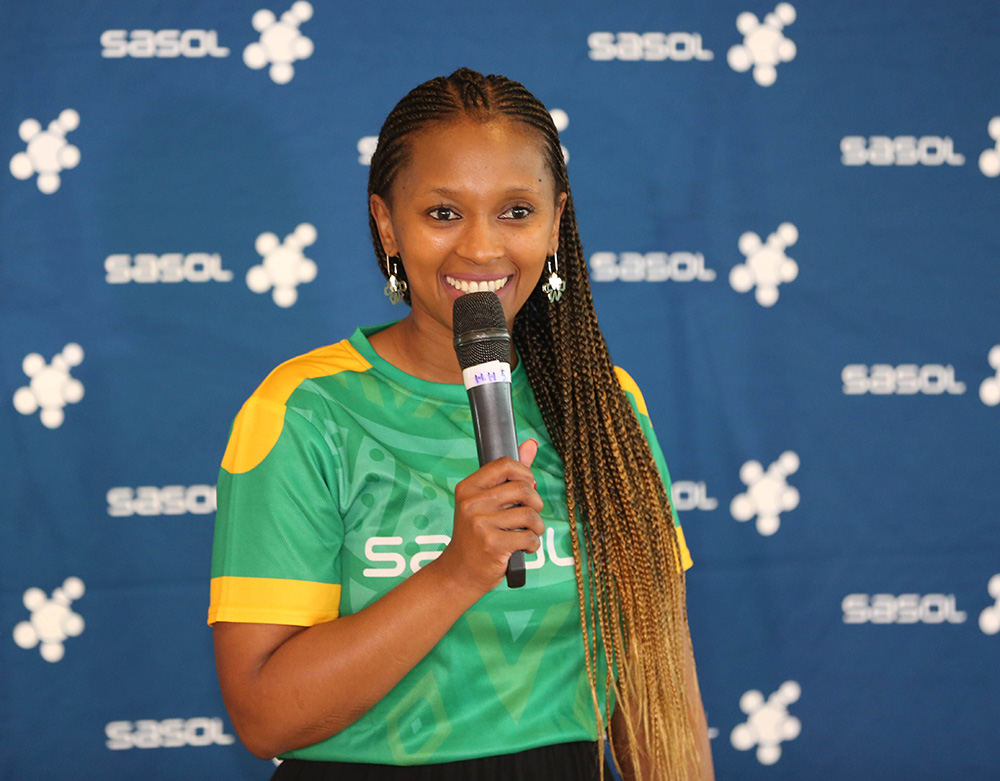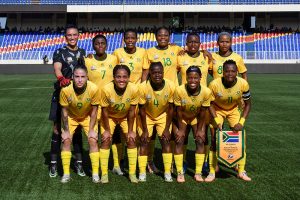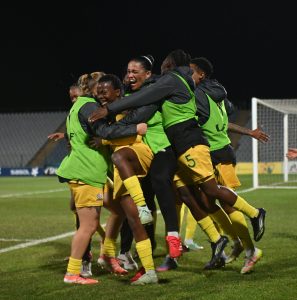Sasol celebrates long-standing commitment to women in sport this Women’s Month
Q: As we wind down Women’s Month, how big a role has Sasol’s sponsorships played in terms of gender inclusivity?
A: Fostering gender inclusivity in sport has been the hallmark of Sasol through initiatives like the Sasol League, Banyana Banyana, and Wheelchair Basketball.
By championing these causes, Sasol has contributed to the broader movement towards gender equality and empowerment, making a positive impact in the lives of women both on and off the field and court, while inspiring them to pursue their passions.
Q: Women’s football is taking off in a big way globally, how has Sasol contributed to its development here in South Africa?
A: Sasol has championed the growth and development of women’s football in the country not only at the international level with the celebrated and hugely successful Banyana Banyana but also at the grassroots level with the Sasol League, South Africa’s semi-professional women’s football league.
The Sasol League has provided opportunities for generations of players since 2009 – approximately 4,000 young women players annually participate in the league between March and September. We are also proud of what the league has achieved in discovering, nurturing, and polishing the next generation of stars across the country. More than 100 exceptionally talented women have had the honour of wearing the green and gold Banyana Banyana jersey during Sasol’s sponsorship – a testament to the success of the Sasol-SAFA partnership.
Q: What have been some of the success stories from the Sasol League?
A: Every member of the triumphant 2022 WAFCON and 2023 FIFA Women’s World Cup Banyana Banyana teams came through and was developed in the Sasol League, which is something we are very proud of.
We have also seen many players moving abroad, not only to further their studies but also to continue their football careers at prominent women’s football leagues that have played a significant role in elevating the standard of play, thereby contributing to the overall growth of the women’s game in South Africa. Notable direct and indirect benefits include knowledge transfer around training methods and nutrition, among others, from professional environments overseas. Returning international players also become role models and inspire young girls to see a clear pathway from grassroots football to the international stage.
Q: Speaking of Banyana Banyana, what incredible milestones have they reached under the Sasol women’s football sponsorship programme?
A: The darlings of the nation. Our partnership with SAFA enabled the team to become an internationally competitive team, qualifying for two Olympic games, in London 2012 and Rio 2016, as well as the FIFA World Cups in 2019 and 2023 – reaching the last 16 at the latter and thereby becoming the most successful South African football team ever at the global showpiece. Also, their FIFA World Cup debut came exactly a decade into Sasol’s involvement, something we are also very proud of.
Q: Their influence has risen dramatically during this period?
A: Having achieved unparalleled success under the Sasol sponsorship, the team’s impact has extended beyond the field of play as they have become a source of inspiration for aspiring women athletes, demonstrating that with dedication, skill, and support, women can excel in traditionally male-dominated fields.
Q: Sasol is also a sponsor of Wheelchair Basketball, what steps has Sasol taken to promote inclusivity of women athletes with disabilities?
A: Part of our identity as an organisation is inclusivity and we are very intentional about it as evidenced by our active support of wheelchair basketball which provides opportunities for talented women with disabilities to engage in sports at a competitive level.
Not only have we supported the development of players from the junior ranks to international senior level, but also the development of match officials through the Sasol Technical Excellence programme which has and continues to produce some of the best talent on the continent. We are very proud of Natasha Onono who has been an IWBF international referee for over 10 years as well as Leandra Stroebel, who is the Chairperson of the IWBF Africa Classifications committee.
Q: In closing, what was Sasol’s motivation for sponsoring the Senior National Women’s Wheelchair Basketball team?
A: To overcome a disability and play any sport at its highest level is a remarkable achievement for anyone. So, by supporting wheelchair basketball, Sasol sent a powerful message that everyone, regardless of physical abilities, deserves the opportunity to participate and excel at the highest level in sport.
We are further inspired by our commitment to be steadfast in creating equal opportunities.





